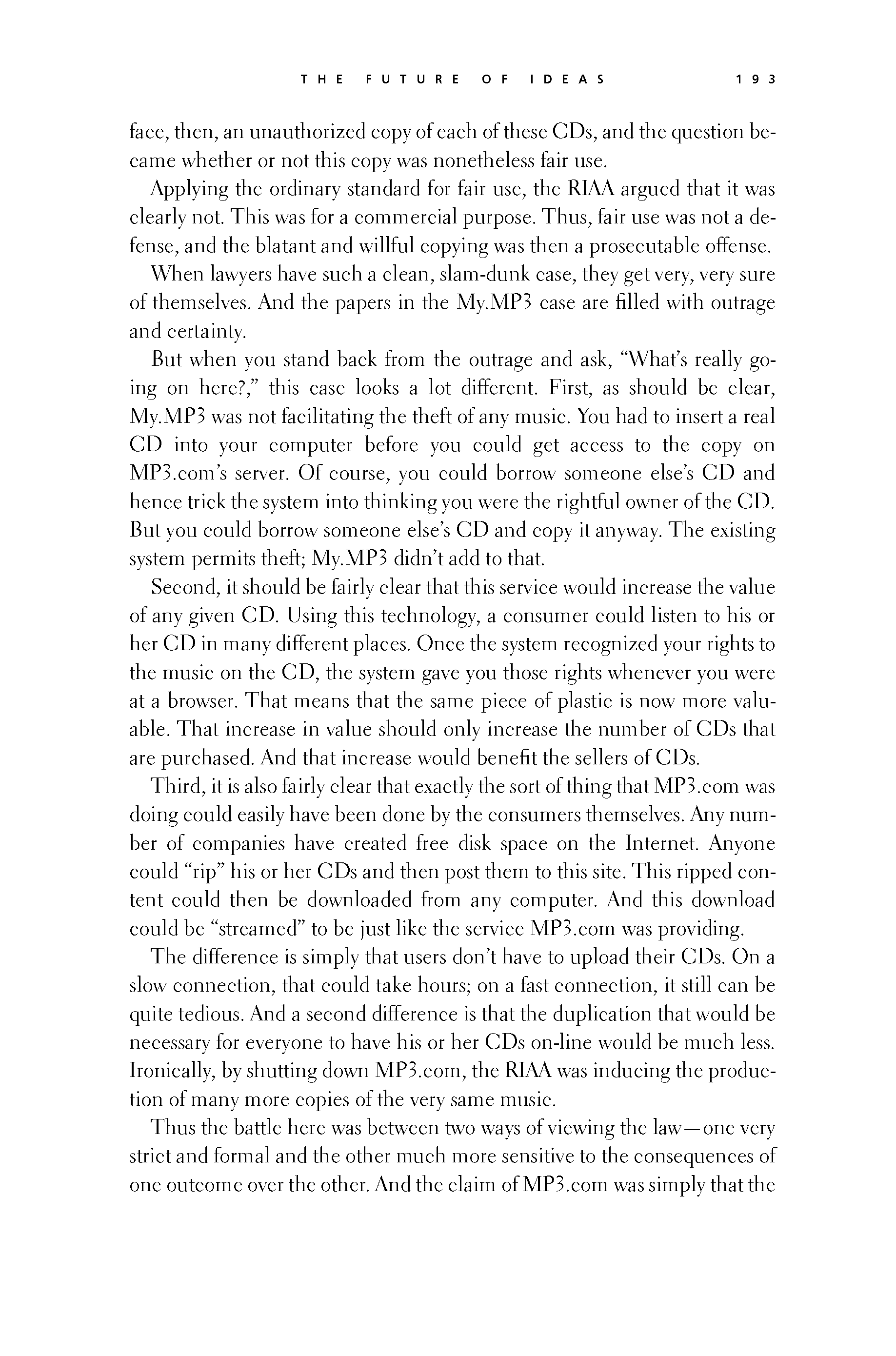 p192 _
-chap- _
toc-1 _
p193w _
toc-2 _
+chap+ _
p194
p192 _
-chap- _
toc-1 _
p193w _
toc-2 _
+chap+ _
p194
face, then, an unauthorized copy of each of these CDs, and the question be-
came whether or not this copy was nonetheless fair use.
Applying the ordinary standard for fair use, the RIAA argued that it was
clearly not. This was for a commercial purpose. Thus, fair use was not a de-
fense, and the blatant and willful copying was then a prosecutable offense.
When lawyers have such a clean, slam-dunk case, they get very, very sure
of themselves. And the papers in the My.MP3 case are filled with outrage
and certainty.
But when you stand back from the outrage and ask, "What's really go-
ing on here?," this case looks a lot different. First, as should be clear,
My.MP3 was not facilitating the theft of any music. You had to insert a real
CD into your computer before you could get access to the copy on
MP3.com's server. Of course, you could borrow someone else's CD and
hence trick the system into thinking you were the rightful owner of the CD.
But you could borrow someone else's CD and copy it anyway. The existing
system permits theft; My.MP3 didn't add to that.
Second, it should be fairly clear that this service would increase the value
of any given CD. Using this technology, a consumer could listen to his or
her CD in many different places. Once the system recognized your rights to
the music on the CD, the system gave you those rights whenever you were
at a browser. That means that the same piece of plastic is now more valu-
able. That increase in value should only increase the number of CDs that
are purchased. And that increase would benefit the sellers of CDs.
Third, it is also fairly clear that exactly the sort of thing that MP3.com was
doing could easily have been done by the consumers themselves. Any num-
ber of companies have created free disk space on the Internet. Anyone
could "rip" his or her CDs and then post them to this site. This ripped con-
tent could then be downloaded from any computer. And this download
could be "streamed" to be just like the service MP3.com was providing.
The difference is simply that users don't have to upload their CDs. On a
slow connection, that could take hours; on a fast connection, it still can be
quite tedious. And a second difference is that the duplication that would be
necessary for everyone to have his or her CDs on-line would be much less.
Ironically, by shutting down MP3.com, the RIAA was inducing the produc-
tion of many more copies of the very same music.
Thus the battle here was between two ways of viewing the law -- one very
strict and formal and the other much more sensitive to the consequences of
one outcome over the other. And the claim of MP3.com was simply that the
[[193]]
p192 _
-chap- _
toc-1 _
p193w _
toc-2 _
+chap+ _
p194